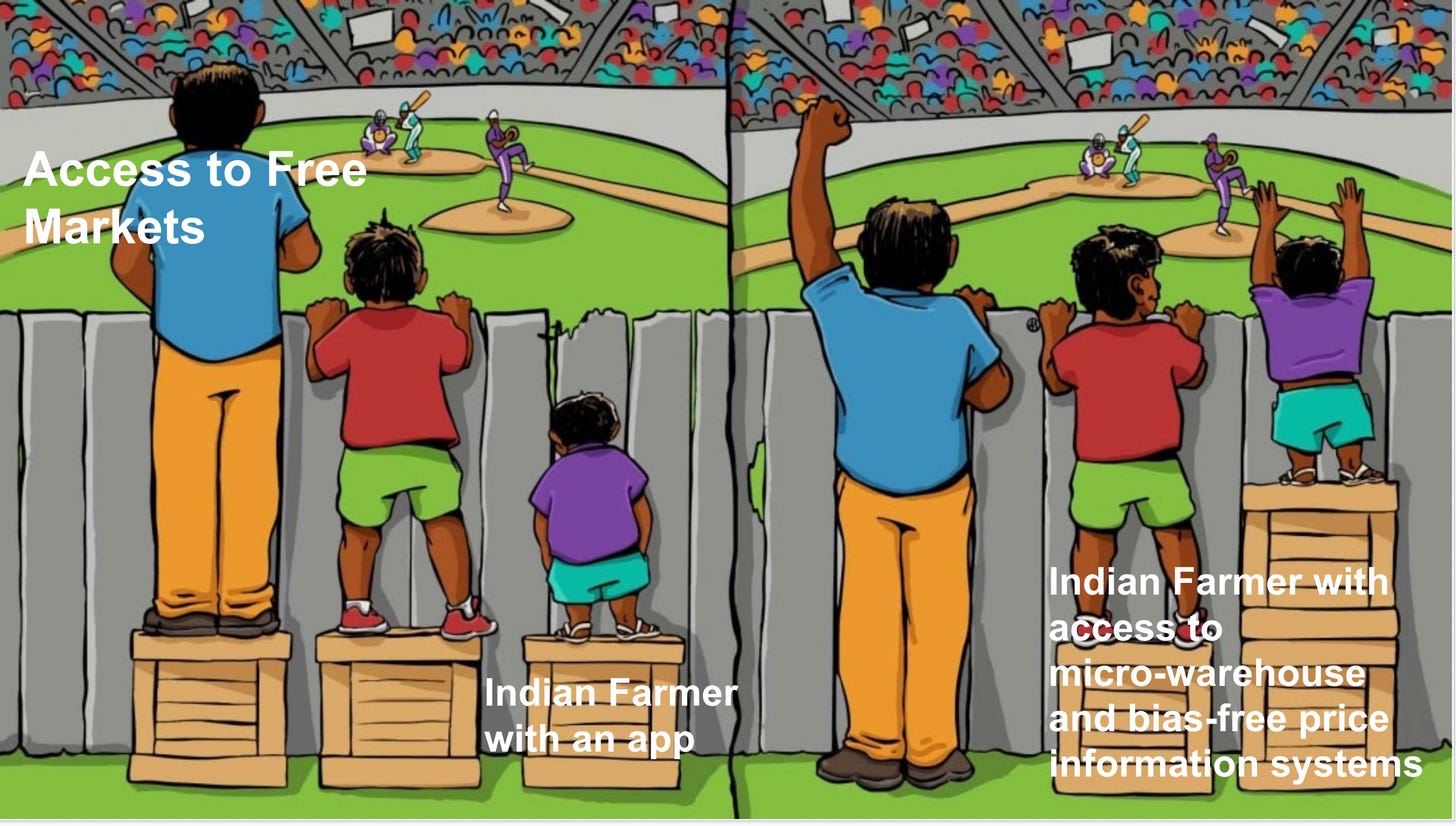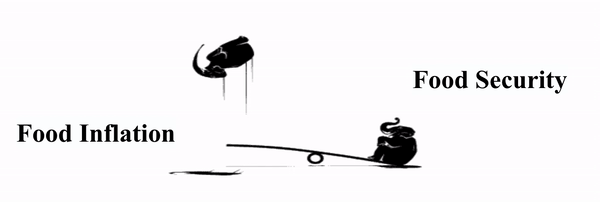Sunday Reflections (02/05/21)
Plus! Event Updates: On Water Matters and Making Sense of the Agri Insurtech Scene.
Dear Readers,
Greetings from Hyderabad!
I write Sunday Reflections in pursuit of one question that is very alive in all the work that I do - In doing what I am doing, what am I really doing?
Just a reminder - My name is Venky, I write Agribusiness matters to explore wicked questions pertaining to agriculture and our future that go beyond moralizing answers of the technological kind. Feel free to dig around the archives, if you want to get a flavor of my previous agribusiness writings.
Before we get started, I earnestly hope and pray that these words find you in the pink of health and spirits! It has been crazy out here in India. We are seething in collective grief as we watch several dear ones lose their dear ones. We are also seething with collective middle-class angst with a question that has been gnawing our insides — What on earth did we do to get here?
In times like these, I feel blessed and privileged to breathe well, sit in one isolated corner and write this newsletter.
Two weeks ago, I kickstarted a new subscriber-only segment: Monday Medley to indulge in some of my favourite country music and talk about Indian agtech startups that are in the spotlight. I covered the Kamatan - Samunnati deal; the recent policy change announced by the Reserve Bank of India to enhance the loan limit against electronic negotiable warehouse receipts and its implications for Indian agtech startups.
The last time I did a pure startup take was when I studied and contrasted 🔒Dehaat and Gramophone to understand the evolution of agri input retail in Indian agriculture. In addition to my obsession to go orthogonally meta on various topics pertaining to agtech and agriculture, I am keen to do more startup takes and tie them with larger questions that I am grappling with.
I am cooking few new ideas for agritech investors who are keen to track the metagame of agritech startups. Expect a new announcement soon!
Earlier this week, I published One Metric to Govern Them All: Producer Support Estimate.
<You will appreciate the reflection commentary more after you’ve read the essay>
It is part of my ongoing investigation to address a simple, but deceptive FAQ question which often confounds me in my agtech sensemaking journey - What is the role of the Government in agriculture?
At first blush, it seems simple enough. A boring textbook answer might read something like this: Government has to ensure a) food security, b) strong property rights and c) build public goods for farmers to become active players in markets.
Things start getting complex when you zoom in on each of these.
When you double click on food security, you encounter an elephantine balancing act
Producer Support Estimate (PSE) was computed to essentially drive down the point that we are focusing too much on the consumers clinging on to the left-hand side of the seesaw, leaving farmers in the lurch.
Now, when you take PSE’s recommendation to “get the markets right” seriously, you encounter the inevitable challenge to get equity right in the farm-to-fork equation.

If history is any indicator, markets have mostly failed under the following operating conditions: 1) Does it require shared resources? 2) Is there information asymmetry? 3) Does it involve transactions in which the pay-off happens in the future?
In such a case, the bar we have to set for markets to do what it is supposed to do is higher:
What does it take to build a sound business model which can raise the tide of sustainable progress in an era of climate change and lift the vulnerable boats of smallholder farmers across the world?
The real challenge we face in the emerging world of agritech is delicately poised in that one italicized word of the question above.
After I published the article, I received an interesting comment from a regular reader:
“I think lack of antitrust is likely why downstream margins have expanded. Fewer and fewer buyers over time with increasing market power.”
Why has this domain of agriculture never been able to introduce antitrust mechanisms through policy constraints?
My current theory to wrap my head around this question goes something like this: In a complex domain like agriculture, we need to understand the pace layers which affect a complex domain like agriculture.
We will explore this further.
Event Updates:
I plan to do a deep dive on the nexus between water and agriculture through a live stream dialogue with Dr.Bhakti Devi, National President, Water Resources Council. You can RSVP for the event here. The event is scheduled for 3rd May, 10 AM IST.
In this week’s edition of Tuesday Investor Conversations in Clubhouse, we will be covering agri insurtech. We will be chatting with Jatin Singh, CEO, Gramcover, Smita Aggarwal (Flourish Ventures), and of course the conversation will be anchored with co-hosts- Mark Kahn, Sarah Nolet, Michael Dean, Matthew Pryor, and I. If you have an iPhone/iPad, you can RSVP and listen in, and ask few questions if you like. (Sorry! Clubhouse isn’t yet on Android for reasons that elude me)
That’s all from my end! Enjoy your Sunday!





